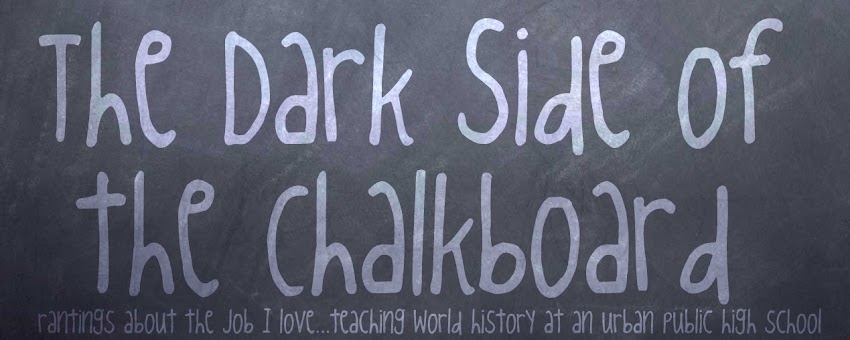- there are a limited number of books, barely enough to distribute to each sophomore and hope that no one loses one - and there are always lost ones
- the books are from 1997 and while some topics (Europe) are covered in pretty good detail, others (Africa) are not covered well at all
- they weigh about 10 pounds
- we have had trouble getting the kids to do homework that is fairly simple in construct and asking them to do something that would require that amount of effort assures that no one will turn it in
But on the other hand, when they read things, they really struggle. Even my stronger students struggle with reading. Of my 130 students, maybe 8 regularly read for pleasure - and read something besides brainless teen fiction. So do I make them read more, which may make them so frustrated they give up entirely, or do I make them read less and find alternative ways for them to learn the information under the heading of "creative teaching?" Is it more important for them to read the information for themselves or to learn the information whatever way works best for them?
The purpose of assigning chapters to read would be to do more discussions. But the problem with discussions are that only the people who do the assignment can participate. This is a great motivator in college, but in high school, most kids do not WANT to participate in a discussion. We have had some success with socratic seminars this year, but I still cannot get ALL of my kids to participate in this. If I was to start doing this type of assignment, I would have 2-3 kids per class able to participate.
Which brings me back to one of the original points...am I underestimating these kids?
And something else to think about....and something I think about a LOT. Is the point of this class to teach skills or to pique an interest in history? This is, after all, just high school. Too much skills and the kids lose interest and motivation and I bore myself to tears. Too much storytime and I am not doing my job to teach them the skills they need for next year.
For now, I'm just rolling around ideas and questions. Your thoughts?

1 comment:
Great post! This is seriously an issue to be pondered upon. One thing I can say that I've learned in my new school is that holding kids to high expectations and providing them with rigorous coursework is something that, for all its positives, we did not do well in the years I worked with you. I think part of the reason that only 2-3 kids do their work is that the entire school expects them not to, and its easy to fall into that trap yourself. I think now that it's absolutely essential to providing kids with rigorous (or at least at grade-level) readings. The trick to this is scaffolding up to them. What I've found this year is that creating a unit or a lesson around a peice of text, and basing your instruction around getting kids to the point where they can actually access a text has done a serious amount of good in getting my kids on grade level. It also helps me to plan more concisely. It's important that good classroom spiral upward, and that any activity (including reading challenging texts) starts by providing all kids with an entry point and then becomes more and more challenging as the activity goes on. This is one area I've definitely benefitted from in my new school.
Post a Comment